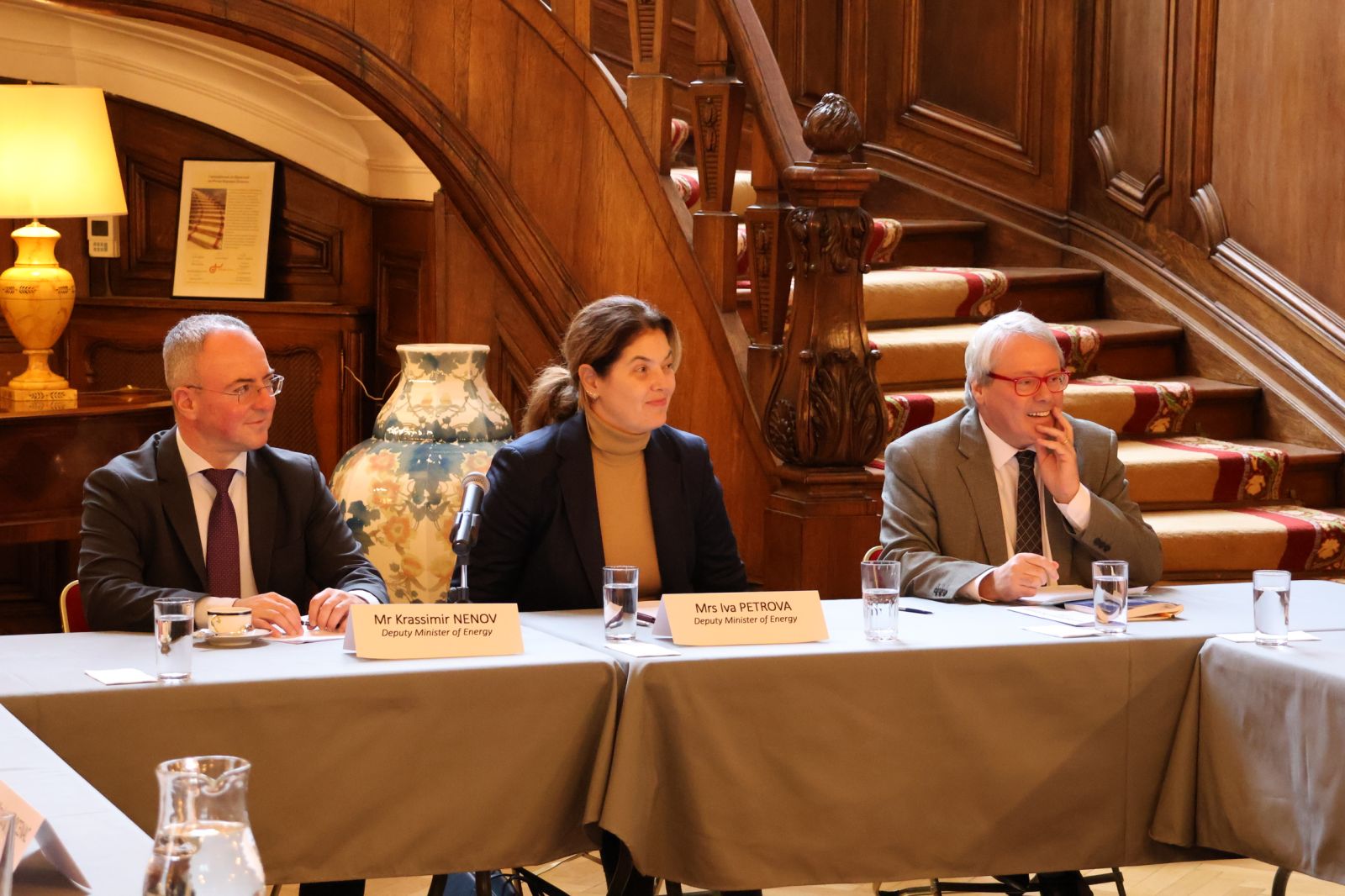Deputy energy ministers Iva Petrova and Krassimir Nenov presented the draft Energy Strategy to key French investors in Bulgaria
Energy security in the context of the objectives of decarbonisation, decentralisation and democratisation is a top priority in the document.
At an Economic Council, organized by the Ambassador of France to Bulgaria, H. E. Joël Meyer, deputy energy ministers Iva Petrova and Krassimir Nenov presented Bulgaria's draft Strategy for Sustainable Energy Development by 2030, with a horizon until 2050, to key French investors in the country. Representatives of the companies Framatome, Veolia, Total, Akuo, Naos, Nasekomo, Meridiam Geothermie and the French-Bulgarian Chamber of Commerce and Industry participated in the meeting.
The project builds on and integrates the modelling scenarios within the Energy Transition Committee of the European Green Deal Advisory Council, the adopted updated Roadmap for Climate Neutrality, the activities to update the Integrated Energy and Climate Plan, the draft territorial Just Transition Plans and the reforms foreseen in the National Recovery and Resilience Plan.
Regarding energy security in the context of the decarbonisation of the energy sector, the project relies on the continued introduction of RES coupled with new flexible low-carbon capacity.
The meeting focused on the development of nuclear energy, an area in which partnership between Bulgarian and French companies is to be enhanced. Hydropower, the prospects for the construction of two new PSHPPs embedded in the draft Energy Strategy and the potential of geothermal energy were of interest for the French business. The participants also drew attention to the challenges of preparing highly qualified staff for the development of the sector and appreciated the inclusion of this aspect in the draft Energy Strategy.
Energy efficiency is crucial concerning the evolution of energy demand and consumption. Active involvement of consumers in the market through sustainable energy communities will be encouraged.
The participants unanimously agreed that a broad public consensus is key for the successful energy development and the corporate sector is a major partner of the state.

